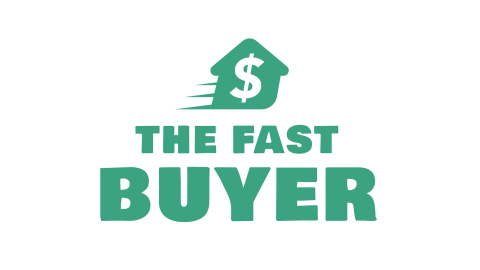Selling a house can be challenging, especially if there are code violations involved. These issues can make it harder to attract buyers and close a sale, but with the right approach, it’s possible to overcome these obstacles. Identifying and understanding the types of violations your property may have is the first step in addressing and eventually selling your home successfully.
Many homeowners find themselves unsure of how to manage a sale with these complications. Whether it’s a simple repair that’s needed or a bigger compliance issue, navigating the process can seem overwhelming. However, knowledge is power. With the right information and strategies, you can turn potential setbacks into opportunities. This guide will help you focus on what to do, how to set a fair price, and ways to highlight the strengths of your property despite its challenges.
Understanding Code Violations and Their Impact
Code violations are instances where a property does not meet the local government’s regulations for safety, structure, or occupancy. These can range from minor infractions like peeling paint to major issues such as structural damage. When selling a house, these violations can complicate the process, as they often deter potential buyers or lead to lengthy negotiations.
Buyers might hesitate to invest in properties with known issues due to the unknown costs of repairs or legal compliance. For sellers, code violations can decrease the marketability of a home, limiting buyer interest or resulting in lower offers. Understanding the specific types of violations that affect real estate transactions can help sellers prepare and strategize effectively.
Common types of code violations include:
1. Safety Hazards: Broken stairs, faulty wiring, and lack of smoke detectors.
2. Structural Problems: Foundation cracks, leaking roofs, or missing handrails.
3. Zoning and Usage Issues: Unauthorized home additions or poor landscaping.
4. Sanitation Concerns: Mold growth or pest infestations.
Addressing violations, where possible, before listing the home can improve chances for a successful sale. Awareness and understanding of these violations help not just to price the home fairly but also to communicate openly with potential buyers, easing their concerns.
Preparing Your Home with Code Violations for Sale
Once you’ve identified code violations, the next step is to decide how to handle them. Addressing minor issues swiftly can make a positive impression on buyers and ease the selling process. Prioritize quick fixes that enhance the safety and appearance of your home without a major renovation.
Here’s how you can prepare:
1. Fix Minor Issues: Patch small holes, repaint surfaces, and ensure all lights work. These quick repairs may seem small but can significantly improve how your home is perceived.
2. Disclose Major Violations: Be upfront with potential buyers about existing issues. Transparency can help prevent unexpected surprises during inspections or negotiations.
3. Highlight Unique Features: Emphasize the strengths of your home, such as large rooms, a desirable location, or energy-efficient installations, to divert focus from the flaws.
Highlighting positive aspects while being transparent about the issues helps in maintaining trust with buyers. Buyers appreciate knowing what they’re investing in, allowing them to plan accordingly. With strategic presentation, even a home with violations can attract serious interest.
Pricing Strategies for Homes with Code Violations
Setting the right price for a home with code violations can significantly impact how quickly the property sells. A competitive price reflects the condition of the home while offering an inviting deal to buyers willing to handle the repairs. Begin by researching the local market to determine the average prices of homes with similar issues. This research provides a baseline for your pricing strategy.
Consider the cost of fixing the violations when setting your price. If repairs are too costly, listing the home “as-is” can appeal to buyers looking for budget-friendly projects. This approach often attracts investors or DIY enthusiasts interested in the potential profit from renovations. Be prepared to justify your pricing with clear explanations of the violations and possible repair costs.
Watch out for common pricing pitfalls:
1. Overpricing: Asking too much can deter potential buyers who see the risk of extra repair costs.
2. Misleading Pricing: Avoid setting a price that does not reflect the property’s condition, which can lead to lengthy negotiations or losing buyer interest.
3. Ignoring Local Policies: Understand local housing laws that might affect pricing dynamics.
With a solid pricing strategy, you can attract buyers who view the home as a worthwhile investment, despite its current issues.
Marketing Tactics to Attract Buyers Despite Code Violations
Marketing a home with code violations requires a focus on its strengths and unique features. Effective marketing can draw attention to aspects that potential buyers find appealing while transparently presenting existing challenges. Start by crafting a creative listing that showcases the property’s potential, using photos that highlight appealing features rather than flaws.
To reach buyers interested in fixer-uppers, target your audience with specific keywords in listings, like “excellent investment opportunity” or “fixer-upper with potential.” These phrases attract buyers looking for projects they can customize.
Effective methods to reach potential buyers include:
1. Online Listings: Utilize real estate websites and social media to reach a broad audience and show off features that set your property apart.
2. Highlight Location Benefits: If the home is in a desirable or up-and-coming neighborhood, emphasize this.
3. Host Open Houses: Allow potential buyers to see the home in person while explaining possible improvements.
With the right approach, you can attract buyers who see past the code violations and envision the future value of the home.
Conclusion
Selling a house with code violations might feel daunting, but it presents a unique opportunity. By understanding the impact of these violations and preparing your home appropriately, you can turn a challenging situation into a favorable one. Pricing the home correctly and using smart marketing tactics ensure you attract the right buyers. Maintaining transparency with buyers about the property’s condition builds trust and facilitates smoother negotiations.
If you’re looking to sell a home with code violations quickly and efficiently, look no further than The Fast Buyer. We specialize in purchasing properties as-is, giving homeowners an easy, hassle-free way to sell. Our quick home buyers understands the intricacies of homes with violations and can provide the support and solutions you need to move forward confidently.




